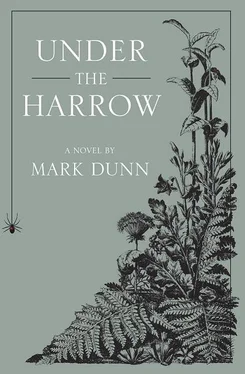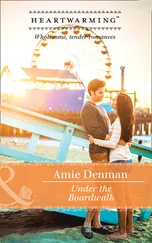“And Mr. Pyegrave and his brothers find no measure of disgrace in the fact that the depression was either induced or attended by drunkenness? Is not inebriety also stigmatic?”
“Somewhat, I’ll grant you, Miss Bocker. But ‘attended’ would be closer to the correct characterisation, for a good many who drink do so to find respite from depressive thoughts. It is a natural and readily available anodyne, is it not?”
Miss Bocker nodded, thinking, as she later confessed to me, that the judge’s ruling was a pile of horse excrement. Not that her casual questionings of the Pyegraves’ neighbours had given her anything with which to refute either the judicial finding or Pyegrave’s account of that tragic evening! And Miss Bocker had nearly given off speaking to those others who lived on Park Lane save a quiet and retiring woman of Antonia’s light acquaintance who occupied the house just next door to the Pyegrave’s townhouse. The woman, who was nearing her dotage, rarely left her home, except to take her little dog each week to have a different-coloured bow fixed to his head.
The private interview concluded, Miss Bocker bid the bailiff good day at the shop door, returned to the counter, and turned her attention next to she who was standing closest to her in the buzzing queue: Maggy Finching, a robust, if slightly flushed, large-figured woman in her middle years who served as cook for the Chowser School. Miss Finching wore a peach-coloured velvet bonnet that instantly captured the eye.
“Good morning to you, Miss Finching, and what brings you so far afield of that quaint boys’ school in the distant heather?”
“Mr. Chowser has given me two days leave to attend to some personal business. I must have a new hat and—”
“Yes, I can see the new hat. It is quite captivating.”
“Do you not think so? The Milltown milliner is a marvel. What is his name? Ah, Mr. Glamour! Mr. Glamour the milliner is a rare marvel.”
Antonia nodded and smiled and touched the nap of Miss Finching’s new bonnet — a riot of colourful ribbons and artificial flowers — and found pleasure in its softness.
“And a new lace tucker since my present one has unraveled and withered itself before the hot stove. And, of course, a brand new frock.” This statement came accompanied by a titter. “Oh, dear me. ‘Frock’ is much too slender a word for a woman of my capacious girth. Let us simply call it a ‘dress.’ A ‘dress for a woman of a certain overwhelming size.’”
“My dear Miss Finching, there is no profit in speaking of yourself in such self-depreciating terms.”
“You’re right. Nor was that even an accurate depiction of myself. The Finching women have always had large bones. I’m the first in my line who didn’t spend her life milking and calving. I’m proud of my position as cook for all of those hungry boys. And Mr. Chowser has been a most generous employer. And my size, besides, is no detriment to my duties, and upon occasion, I dare say it can even be an asset, especially when there is a side of meat to be conveyed from the butcher’s waggon to the kitchen and no hobbledeboy nearby to impress into my temporary employ.”
Throughout the preceding proclamation Maggy Finching had directed her gaze not at Antonia Bocker but out the front window and toward the busy street that passed the stationer’s shop. Antonia could not help noticing. “Miss Finching, is there someone you’re expecting to see out there?”
“Oh, no. Not particularly.”
“Then let us do business together. How may I be of service to you?”
“Yes, yes. I have letter paper with the name of the school in the heading, you see, and Mr. Chowser wishes — because there is a little bit of school business that I must transact on my trip as well — wishes a crimpled edge along the sides as one finds in the finest handmade paper. Can you crimple the edges for a not unreasonable sum?”
“I believe that I can.”
“Happy day! I will leave it here then and—” Suddenly, something caught Maggy Finching’s eye. It produced a little gasp in the viewer, and from this point forward hustled and compacted all of her remaining words to Antonia, so that they ran together in one long unbroken torrent: “ExcellentnowpleasetakethesesheetsandsendthembyPPDSifyouwillImustgoIreallymustTataMissBockerandgoodday!”
With that, Miss Finching hurriedly tied the strings of her new peach bonnet and waved herself out the door in a quick waddle.
Once in the street, Miss Finching said “oh dear” to herself perhaps three times and looked ahead, peering beneath the shade of her flattened palm, and then groaned a little to think that the object of her search, just a moment ago caught within her sights, had now eluded her. But then in a trice she re-discovered that which she had sought— he— not so far ahead that she could not catch it— him— for it was a man. A man whom she knew.
“Hurry up, you fool!” she mumbled to herself in a most distressful tone. “You cannot let him get away!”
For Miss Finching’s quarry was indeed “getting away,” having stopt for only the briefest of moments to peer through the window of the miniature painter’s equally diminutive gallery, there to squint at the tiny paintings set upon dolls’ easels, and there to curse his ineffectual eyesight for missing the smaller details, and then to move quickly along.
“Perhaps he’ll glance back and see me,” she said quite aloud to herself, “but no, I shan’t have that, for my plan is to stroll up to him casually and as if unawares.”
Whilst Miss Finching continued to ponder her predicament as the object of her interest put greater and greater distance between himself and his unknown pursuer, there was a private family drama taking place in the jewellry shop on the other side of the street at very nearly the same time (for this be the memory of all parties who imparted to me what was happening as the minute hand of the clock crept to that spot in which all hands pointed upward). Mrs. Rose Fagin had shut the door and latched it and turned to her daughter Susan who sat upon a skirted stool beside the flat, glass-covered display cabinet, which showed an eye-catching array of coral bracelets and polished jet necklaces and gem rings that sparkled in the gentle gaslight. The third player in the drama, Herbert Fagin, stood next to his daughter with his delicate fingers (much the better for jewellry handling and watch repair) resting upon his daughter’s heaving shoulders.
Susan Fagin had been crying even before she arrived at her parents’ shop, but now the bung had been fully removed and the tears fell quite gushingly.
“Have a blow,” said Mrs. Fagin, offering her daughter a handkerchief. Susan took the handkerchief and blew her nose loudly with it and dabbed at her moist eyes (but not in that order) and sat down quietly, without telling a word of what had brought her to such a sorrowful state.
“Take all the time you need, my love,” said Rose, seating herself at the side of her only child.
Susan nodded and blew her nose again and prepared herself to tell what the matter was.
Outside the jewellry shop the man urgently sought by Maggy Finching stopt again to take a toothpick to his teeth (having eaten a late breakfast at his habitual chop-house and finding some portion of it still residing within his mouth.) Being offered now the opportunity she desired to come upon him as if by chance, Miss Finching executed that very feint, right there in the street with nearly half of Milltown hurrying hither and thither to conduct their commerce before the close of this business half-day.
“Sheriff Muntle!” she declared with a manufactured look of surprise, “How pleasant it is to see you here!”
Taking her hand warmly in his own, Muntle smiled and said, “The pleasure is entirely mine, Miss Finching. And quite the good fortune, for is it not the case, my dear woman, that you seldom take yourself this far from the school?”
Читать дальше












